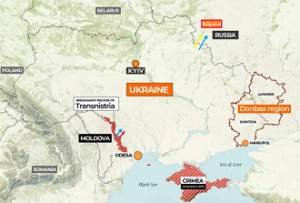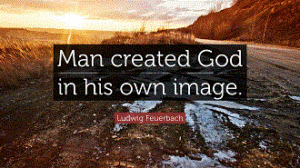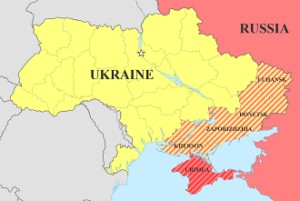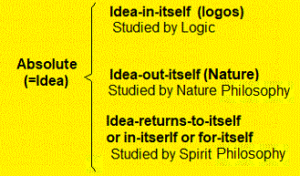
Arquivo para a ‘Information ethics’ Categoria
The Semitic Origins of the West
Our culture and society is often referred to as Judeo-Christian, but if we look deeper into history, Judeo-Christian culture descends from Semitic, and thus both Arabs and Jews descend from Semites, as does much of North Africa.
Judeo-Christian, but if we look deeper into history, Judeo-Christian culture descends from Semitic, and thus both Arabs and Jews descend from Semites, as does much of North Africa.
At the root of three great religions is Abraham: Jews, Arabs and Christians, here is his pilgrimage from Babylon of the Chaldeans, the Biblical narrative places him in Ur of the Chaldeans, is the neogenesis of these three great peoples, of which only a few eastern peoples where these religions already penetrated and also some originary peoples where there is still their initial religiosity.
Abraham goes through two great civilizing crises the Babylonian fall and after his pilgrimage to ancient Assyria arriving at the city of Aleppo, which under the rubble of the war and the earthquake still exists in Syria today, and then from to the Hebron valley, where he spent by a second civilizing crisis in the cities of Sodom and Gomorrah, where there were orgies and decadence.
He leaves there and goes towards Egypt, and his son Isaac will also remain a nomad, the fight between his sons Esau and Jacob is famous, Machado de Assis has a book with this name and we could say that the polarization of humanity is older than we think.
From Jacob will be established the lineage of the 12 tribes from his sons, and from the lineage of Judah will come David, while from the lineage of this one will come Joseph son of another Jacob, and of Joseph be born Jesus.
Understanding this Abrahamic descent, with all the struggles and contradictions that have taken place in history, is fundamental for us to understand both Christian, Islamic and Jewish culture, an inter-religious and multicultural dialogue is possible if we understand that the history of a single God, just as a distant historical past unites these peoples.
Religious fundamentalism prevents this dialogue, the evangelist Matthew who was an enemy tax collector of the Jews, refers to his own conversion like this (Mt 9,10): “While Jesus was at the table, in the house of Matthew, many collectors came of taxes and sinners and sat at the table with Jesus and his disciples” and Jesus will say “it is the sick who need doctors” and completes the teaching by saying “I want mercy and not sacrifices”.
How much division, hatred and violence in the name of God, this is not religion, it is just fanaticism.
Mercenaries, Intense Combat and the Threat of Peace
The war in Eastern Europe remains a center of  concern for world peace, after some advances by the Ukrainian army, Russia again advanced in the east in combat described as “fierce” and slow advances by the Ukrainians in the south, but there are threats around Europe’s largest nuclear power plant, the Zaporizhzhia that still worry.
concern for world peace, after some advances by the Ukrainian army, Russia again advanced in the east in combat described as “fierce” and slow advances by the Ukrainians in the south, but there are threats around Europe’s largest nuclear power plant, the Zaporizhzhia that still worry.
The debates around the Wagner group, their real objectives and the dangers for both the Russians and the West follow, since their methods and interests are ruthless and cruel, and thinking that they could have access to the nuclear arsenal makes the fact even more dangerous. .
The pope sends a bishop for talks with the Russian Orthodox Church, which can also be a mediator, since it has access to Putin and the religious dialogue between the churches can favor a future peace agreement.
The involvement of NATO and its European allies grows with each new step in the war, and now Russian Chancellor Lavrov has gone on to say that Zelensky is a puppet, which intensifies the confrontation with Europe and raises the level of tension.
Until the beginning of the European autumn (spring here in the south of the hemisphere) the war should remain intense, but with little advances from side to side, the problem with autumn there and the proximity of winter is that it becomes more strategic due to the climate, the dependency on energy and a growing difficulty in moving on the ground, until then a peace strategy is important.
The world is waiting for some truce, but the scenario is increasingly complex, since the West, through NATO, is increasingly involved in the conflict, while Russian contempt and cruelty towards Ukraine grows with each combat since the loss of life intensifies the climate of animosity and the economic situation deteriorates.
The world and people of common sense are waiting for peace, for a negotiated solution and the resumption of peaceful life in the region, which would also improve the human condition in the world.
Between rhetoric and prayer
Until the beginning of the last century, the logical-idealist discourse prevailed, which is still part of a good part of the contemporary narrative, but a good part of it is now shattered by contradictory narratives and psychopolitical or ideological cohesion.
prevailed, which is still part of a good part of the contemporary narrative, but a good part of it is now shattered by contradictory narratives and psychopolitical or ideological cohesion.
The Greeks from the opposition to the Sophists, in particular Aristotle divided the speeches into 4 types: poetic, rhetorical, dialectical and analytical.
The poetic is related to the possibilities of the imagination, dreams of possibilities and is neither unreal nor delirious, being utopian in the best sense of the word.
The rhetorician deals with the world of dialogue, uses modes of persuasion, but is supposed to be founded on common beliefs, imaginary and dystopian beliefs of our time, cannot be confused with it, can be eloquent, but not rhetorical.
The dialectician is also the one who deals with the probable, defining errors and truths with greater or lesser probability according to the demand of reason, but submitting beliefs to the test through tests and attempts to overcome objections, seeking the truth among errors and errors. between truths.
Finally, the analytic deals with certainties and certain demonstrations, starting from premises and demonstrating the veracity of the conclusions and in an apodictic way the truth, the dialectical debate that supposes Hegel and idealism is not apodictic, it is opposed more as a belief than as true.
A few words, coming from the heart and feeling, as poetics demand, from tolerant and respectful rhetoric, from Greek dialectics that flee from casuistry and dogmatics, and finally from a true apodictic foundation, those who have categorical assertions about right and wrong, honest and dishonest, far from sophistic and empty speech.
If you speak, speak with clarity and empathy, if you pray, speak with the heart and with few words and if you think, look at the positive, generous and healthy.
Pure rhetoric is not speech, neither dialogue nor prayer is just personal proselytizing.
Phenomenology and the other
The Other is not a contemporary category, however how it is realized from the Husserlian phenomenology is something entirely new, not by chance Heidegger, Husserl’s student and disciple thought ipseity thought the rooting of otherness in “ipseity” itself (Selbstheit) (which differentiates one being from another, refusing to think the “self” (Selbst) according to the categories of substance and “identity” (Identität), thus his ontology of the Other is entirely new (within philosophy) .
from the Husserlian phenomenology is something entirely new, not by chance Heidegger, Husserl’s student and disciple thought ipseity thought the rooting of otherness in “ipseity” itself (Selbstheit) (which differentiates one being from another, refusing to think the “self” (Selbst) according to the categories of substance and “identity” (Identität), thus his ontology of the Other is entirely new (within philosophy) .
If we want to deal with identity, a category proper to a period of individualism and alleged finite totalities, we can say that in a more current modern anthropology, the “theory” of identity must be seen as giving the Other the “similar” aspect as a “human being”. ”, but defined as “diverse” and “unequal” in the set of interethnic, intercultural or interreligious relations.
It is this contact between different cultures, religions and even ideological identity positions, that the civilizational process is at stake, there is no lack of “influencers” and groups that encourage one type of culture in repulsion to another, treating the unequal and the different as “enemy ” and this does not even mean that they do not exist, in a war for example, but the negation of the Other.
There is no lack of philosophers who have dealt with the subject, we highlight Husserl’s phenomenology and its influences: Heidegger, Edith Stein, I highlight Paul Ricoeur (The self as an other) and Emmanuel Lévinas (Ethics and infinity) and Hans-Georg Gadamer (Truth and Method).
But also Habermas (The philosophical discourse of Modernity and The inclusion of the Other) and Byung-Chul Han (The expulsion of the other: Society, perception and communication today) which are very good for analyzing communication and society today, but without a clear view of Being as Being as in Heideger’s ontology.
Recognizing the Other as having dignity and deserving respect, even if in positions different from ours, is the remedy for today’s lack of empathy.
Hope for Peace and Tactical Weapons
In the midst of international attempts to broker the war in Ukraine, several African countries led by South Africa through its president, visited Ukraine and Russia at the end of last week, the results are not hopeful, but each attempt at peace is a new impetus and international public opinion for a negotiated and diplomatic peace is growing.
African countries led by South Africa through its president, visited Ukraine and Russia at the end of last week, the results are not hopeful, but each attempt at peace is a new impetus and international public opinion for a negotiated and diplomatic peace is growing.
In addition to the president of South Africa Ramaphosa, there were also the presidents of Senegal Macky Sall, of Zambia Hakainde Hichilema and of Camores Azali Assoumani, in addition to high Congolese, Ugandan and Egyptian representatives.
In Ukraine, in addition to conversations with President Zelensky, they visited the cemetery where hundreds of civilians from the city of Bucha are, one of the biggest massacres promoted by the Russian invasion, and there they deposited flowers.
At the end of the week, they visited Putin and heard the traditional rhetoric that Russia had no other way out for its security, and that the negotiation must include the territories conquered in the war.
The main concern of African countries is the delivery of grains from both Ukraine and Russia and that an international crisis can affect food security, especially in the poorest countries, which includes Africa.
Russia has sent “tactical” weapons to Belarus, its traditional ally in this war, stating that the objective is not to use them, but has the “tactical” objective of defending the borders including that of its Ally.
Sending fighter jets and tanks to war is one more fuel for Ukraine, and has already changed the nuclear scenario, countries that opted for disarmament and “green” policies abandon this perspective, an example is Germany, which increased for the first time since the second world war, its military budget.
But the internal propaganda of the State, which dominates practically all means of communication, is that with nuclear weapons Russia is stronger and will be able to use them if necessary.
The conflict has already crossed all borders, there are few countries that have not positioned themselves, however, the formation of a bloc that wants peace is fundamental for a mediated exit.
War and humanitarian actions
The explosion of the dam in the region of Nova Kakhovka, region of  Kherson, aroused a stronger humanitarian feeling due to the disaster that is also environmental and that affects all residents of that region, including the Crimea that is Russian domain.
Kherson, aroused a stronger humanitarian feeling due to the disaster that is also environmental and that affects all residents of that region, including the Crimea that is Russian domain.
Despite being a huge and dangerous challenge, Ukraine is the victim of bombing almost every day, many humanitarian organizations help people who live there or who are returning (a large number decided to take the risk), according to the NGO Zoa, help from various NGOs reached around 5.5 million people.
One of the destroyed regions in the north, which borders Russia and Belarus is Cherniguive or Chernigov, there the NGO Zoa helps rebuild life and gives assistance to people, this is a way to encourage people to continue living there (photo ZOA credits).
Iceland has severed relations with Russia, Putin vows to retaliate.
Certainly, life in Ukraine will never be the same again, and generations will remember this horror as they remember the Holodomor (1932-1933) in the Stalinist period, one of the reasons that separate peoples who are ethnically close.
The war enters a period of possibility to escalate to other countries and explode into a new world catastrophe of a global war, Russia has already moved “tactical” nuclear weapons to Belarus, a clear threat to the countries that help Ukraine.
Attempts to establish peace or a ceasefire are increasingly desperate and with little chance of success, but they continue to happen, at this moment they are heroic.
The painful and dangerous stage represented by the Ukrainian counter-offensive and the Russian threats, represent the limits of an even more cruel and dangerous total war, many countries are already taking a stand for a possible intervention and support for one of the sides in this insane war.
The appeal must be made to common sense, true humanitarian values and the danger of an unprecedented civilizational crisis.
The war beyond territorial limits
With very limited attempts at peace, the war in Eastern Europe threatens to go beyond the borders, which makes the limits dangerous, both the attempt to invade Russian territory and destabilize Moldova,which now considers being a member country of NATO (its constitution prevents it).
to go beyond the borders, which makes the limits dangerous, both the attempt to invade Russian territory and destabilize Moldova,which now considers being a member country of NATO (its constitution prevents it).
Russia already has weapons and troops in Transnistria, a narrow strip in northern Moldova, while Soviet groups with support from Ukraine begin to launch attacks inside Russian territory.
While Russia’s land and sea access to Moldova is limited, the government of Moldova’s President Maia Sandu has accused Russia of using “saboteurs” disguised as civilians to stoke unrest amid a period of political instability, but Russia would gain access to southern Ukraine, leaving it more besieged and fragile.
The Ukrainian counter-offensive so far seems not to have taken effect, the Donesk region that would be a possible target has not proved fragile, with Russia defending its positions.
In terms of international diplomacy, an ideological alignment begins to grow, the so-called third way, which China and Brazil would also be part of, are increasingly closer to the Russian discourse of “conquered” territories and the discourse of peace is weakened .
Europe will hold a new meeting to discuss Ukraine’s entry into the Eurozone, it seems more plausible than entry into NATO, since in its statute no country at war can enter, it would be a serious exception and Russia would understand a declaration of war open.
Open because the sending of fighter jets and weapons to Ukraine is already a declared support, the countries, however, allege that it is for the “defense” of the territory, and for this reason the entry into territory is not well regarded by the NATO countries, it was even a condition for sending fighter jets to Ukraine.
The week will be decisive with the discussion of the countries of the Eurozone, and the counter-offensive of Ukraine, for the time being many attacks on Kiev, some of which hit children and a clinic.
The signs of peace are increasingly difficult and less effective, what happens is a strong alignment at all levels, from the economic to the political, each side tries to strengthen itself.
God the image of man
It was Feuerbach who was the first to make an anthropological reduction of theology, his god is made to establish man, there is no liberation of man without the negation of god. He started from the assumption that religion is the expression and cause of human alienation, he saw it like this: “man’s knowledge of God is only man’s self-knowledge and his own essence”, in a clear allusion to Hegel’s Absolute.
of theology, his god is made to establish man, there is no liberation of man without the negation of god. He started from the assumption that religion is the expression and cause of human alienation, he saw it like this: “man’s knowledge of God is only man’s self-knowledge and his own essence”, in a clear allusion to Hegel’s Absolute.
His analysis of the religious attitude and the concept of alienation, Feuerbach influenced the socialist thinkers of the 19th century, especially Karl Marx, is among others (called Old Hegelians) a transition between Hegelian idealism and historical materialism.
Its analysis is important because many today reaffirm this idea that it is the material basis that constitutes man’s consciousness, the consciousness of God is the consciousness that man has of himself, the knowledge of God is the knowledge that man has of himself even so god of prosperity and who gives human material goods is Feuerbach’s god.
This is also present in contemporary religions, a god of power and wealth.
We have already elaborated that Hegel’s god of the Absolute is not relation and therefore not Trinitarian.
His reading is: ““the hermeneutic key that the author uses to understand religion is the following: religion is anthropology, ‘theology is anthropology’, so what man says about God, through religious language, is nothing else. than a confession of his aspirations and projects”, however it is God who creates to satisfy only immediate human needs.
This does not mean a God in nature who does not know man, otherwise the figure of Jesus would just be a superior being with no relation to man, including his human needs.
The Hegelian world created this selfish and merely human face, where gifts and divine asceticism do not exist.
Feuerbach, Ludwig (1988) A essência do cristianismo. Brazil, Campinas: Papirus, 1988.
The Russian counter-offensive and threat
The week promises to be tense in the war in Eastern Europe, Ukraine has announced the start of its counter-offensive and Russia is threatening retaliation for Western aid in armament for this new phase of the war.
has announced the start of its counter-offensive and Russia is threatening retaliation for Western aid in armament for this new phase of the war.
Peace is a long way off, now it’s really about the occupied territories the point of contention, and the whole question of the threat of borders and NATO advance is no longer the point, even if it is touched, the four partially occupied territories: Lugansk, Donesk, Zaporizhzhia and Kherson are claimed by both warring countries, as well as Crimea.
After several countries announced arms and financial support for Ukraine, Russian threats escalated and threatened with “strategic” nuclear weapons, but any war on one of the NATO countries is immediately declared war on all and the conflict could escalate.
In the province (oblats) Belgorod in Russian territory was the first conflict inside the country in this war, right-wing and anarchist anti-Putin groups appeared on the scene, indicating that something is already happening inside Russia, the Russian government says it is under control, however evacuated the region.
The scenario is quite worrying, because the scale of the war and a possible conflict on the soil of NATO countries could mean an open start of a third world war, the Russian threats do not seem like a bluff, but a response to Western aid that prolongs the war and gives survival to the conflicting Ukrainian forces.
The displacement of nuclear weapons from Russia to Belarus and warships in the oceans indicate that the danger of responding to the West is real and could happen.
Although in the war in Ukraine it was demonstrated that there is a war capacity to intercept Russian hypersonic missiles, with nuclear charges no matter where they are detonated they will have a devastating effect on the environment and human life.
It remains for those who desire peace to ask that conflicts cease and that men return to serenity and respect for human life and nature.
Controversies of spiritual and philosophical asceticism
To deny asceticism, one resorts to the idea that it would be impregnated with “Christian exegesis”, however, the literature itself shows that this is a contradiction, since both idealist philosophy tries to remake a vision of what is spiritual in the “Phenomenology of the Spirit” and also more modernly Foucault ( ) will say that the Greeks in the Hellenistic and Roman times would be far from understanding the term we call ascesis. “Our notion of asceticism is, in fact, more or less modeled and impregnated by the Christian conception”. (FOUCAULT, 2004, p.399).
“Christian exegesis”, however, the literature itself shows that this is a contradiction, since both idealist philosophy tries to remake a vision of what is spiritual in the “Phenomenology of the Spirit” and also more modernly Foucault ( ) will say that the Greeks in the Hellenistic and Roman times would be far from understanding the term we call ascesis. “Our notion of asceticism is, in fact, more or less modeled and impregnated by the Christian conception”. (FOUCAULT, 2004, p.399).
In Michel Inwood’s Hegelian dictionary, we find the concept of Spirit (geist): “Geist includes the most intellectual aspects of the psyche, from intuition to thought and will, but excluding and contrasting with the soul, feeling, etc.”, however Spirit in Hegelian usage has a meaning that is both similar and different from that used in everyday life (in the sense of the soul) and in philosophy, since there is also a “Trinitarian” meaning there.
As in all idealist philosophy, Hegel is a post-Kantian it is good to say, there is a search for overcoming the subject and object duality, for Hegel it is found in the Absolute Spirit, said in such a way as to propitiate an encounter between the subject and the object, forming an identity that takes place within the mutual relationship between subjectivity and objectivity.
While in Kant transcendence is what makes the Subject go to the object, in Hegel it is the Absolute that marks a meeting between the subject and the object, forming an identity that takes place within the mutual relationship between subjectivity and objectivity, but in both there is no Being in transcendence.
It is important to understand this relationship because in it what Hegel treats as an essential intellectual activity takes place, for the intellective apprehension both about the object (which is precisely the moment of alienation as a “going out of the Self”) and about the subject itself (the return to subjectivity after the experience with the object, that is, the Other as he sees it), thus different from the ontology of Husserl, Heidegger and others, who see in this an ontological relationship with Being.
For this, one must penetrate the Hegelian categories: in-itself, of-itself and for-itself, said in the Philosophy of Right as: “In effect, the in-itself is consciousness, but it is also that for which it is a Other (the in-itself): it is for consciousness that the object’s in-itself and its being-for-an-other are the same. The I is the content of the relationship and the relationship itself; it confronts an Other and at the same time surpasses it; and this Other, for him, is only himself” (HEGEL, 2003);
Many contemporary philosophers will see the Other, as something beyond the Self, and a for-itself something beyond the Self and the Other, a “for” beyond.
Although there are controversies both in Hegelian idealism and in his “Trinitarian” dialectical conception, it is important to note that for him the members of a community should always have among the principles the one that “has objectivity, truth and morality” (HEGEL, 2003, §258).
Foucault, Michel. (2004) A hermenêutica do sujeito. Transl. Márcio Alves da Fonseca; Salma Tannus Muchail. Brazil, São Paulo: Martins Fontes.
Hegel, G.W.F. (2003) Princípios da Filosofia do Direito. Transl. Orlando Vitorino. Brazil, São Paulo: Martins Fontes.
Inwood, M. J. (1997) Hegel. Dicionário Hegel. Transl. Álvaro Cabral. Brazil, Rio de Janeiro: Jorge Zahar Editor.

